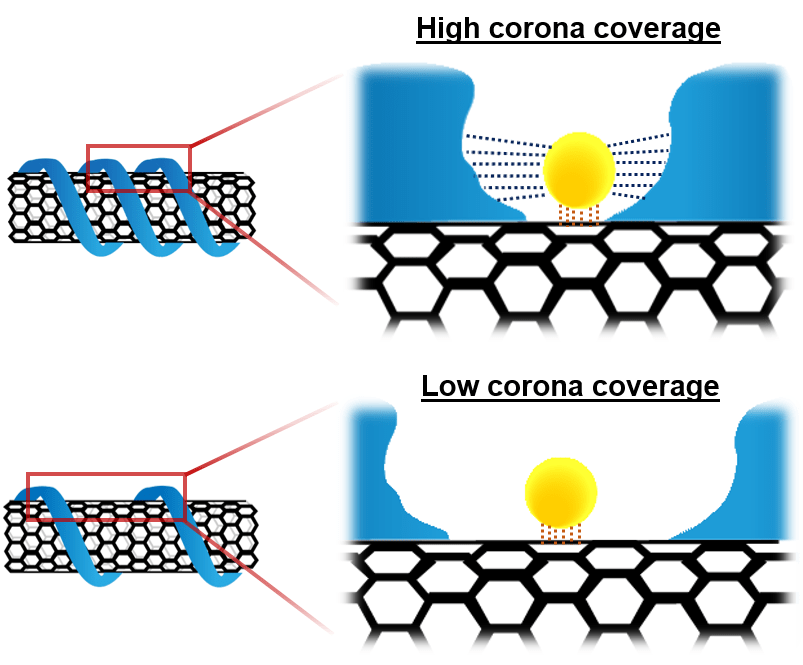SMART Discovers Breakthrough Way to Look at the Surface of Nanoparticles
The discovery will enable SMART researchers in precision agriculture to develop new plant sensors for hormones and nanoparticle carriers for gene engineering
Researchers from SMART, MIT’s research enterprise in Singapore, have made a ground-breaking discovery that allows scientists to ‘look’ at the surface density of dispersed nanoparticles. This revolutionary technology enables researchers to ‘characterise’ or understand the properties of nanoparticles without disturbing the nanoparticle, and also at a much lower cost and far quicker too. New method to explore the surface of nanoparticles will accelerate Nano-engineering of materials and can be used to ‘characterise’ nanoparticles with any geometric shape as a universal characterisation technique.
The new process is explained in a paper titled “Measuring the Accessible Surface Area within the Nanoparticle Corona using Molecular Probe Adsorption”, published this month in the prestigious academic journal, Nano Letters. It was led by Michael Strano, co-lead principal investigator of DiSTAP and Carbon P. Dubbs Professor at MIT, and Minkyung Park, Graduate Student at MIT. DiSTAP, the Disruptive & Sustainable Technologies for Agricultural Precision Interdisciplinary Research Group (IRG) is a part of the Singapore-MIT Alliance for Research and Technology (SMART), MIT’s research enterprise in Singapore. DiSTAP IRG develops new technologies to enable Singapore, a city-state which is dependent upon imported food and produce, to improve its agriculture yield to reduce external dependencies.
The Molecular Probe Adsorption (MPA) method is based on non-invasive adsorption of a fluorescent probe on the surface of colloidal nanoparticles in an aqueous phase. Researchers are able to calculate the surface coverage of dispersants on the nanoparticle surface – which are used to make it stable at room temperature – by the physical interaction between the probe and nanoparticle surface. The method is substantially faster and cheaper than existing chemical methods and does not damage the nanoparticle being studied. MPA will also aid researchers across all sectors to push nanoparticle research boundaries and current limits.
“We can now characterise the surface of the nanoparticle through its adsorption of the fluorescent probe. This allows us to understand the surface of the nanoparticle without damaging it, which is, unfortunately, the case with chemical processes widely used today,” said Park. “This new method also uses machines that are readily available in labs today, opening up a new easy method for the scientific community to develop nanoparticles that can help revolutionise different sectors and disciplines.”
The MPA method is also able to characterise a nanoparticle within minutes compared to several hours that the best chemical methods require today. Because it uses only fluorescent light, it is also substantially cheaper.
DiSTAP has started to use this method for nanoparticle sensors in plants and nanocarriers for delivery of molecular cargo into plants.
“We are already using the new MPA method within DiSTAP to aid us in creating sensors and nanocarriers for plants,” said Strano. “It has enabled us to discover and optimise more sensitive sensors, and understand the surface chemistry, which in turn allows for greater precision when monitoring plants. With higher quality data and insight into plant biochemistry, we can ultimately provide optimal nutrient levels or beneficial hormones for healthier plants and higher yields.”
The discovery will enable SMART researchers in














